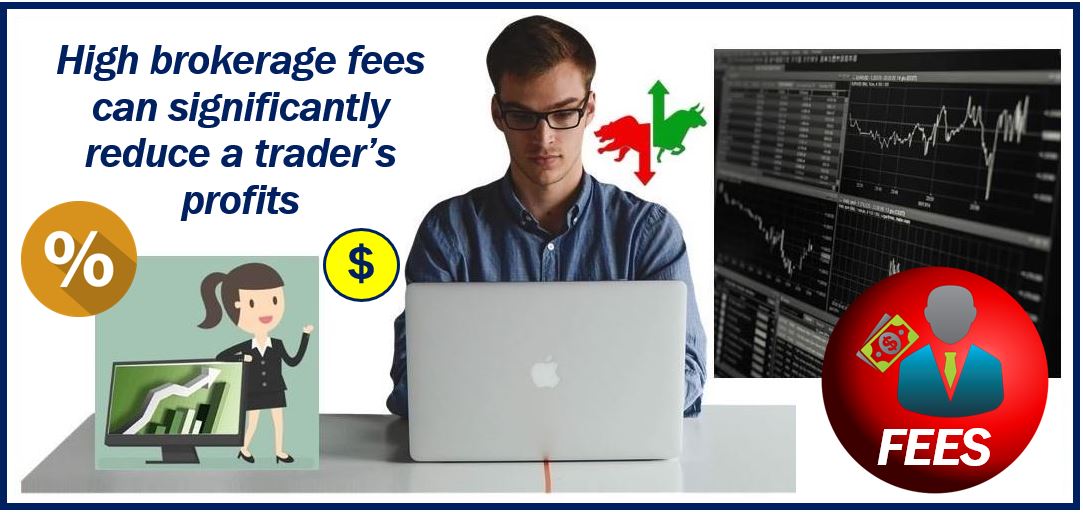The basic rules of business apply to trading. Generally, you make a profit when you buy a product at a lower price and then sell it at a higher price. However, since there are expenses involved in running a business, they will eat into your profit.

In trading, one of the most common expenses that traders incur are brokerage fees. These are the fee that the broker charges for services that they offer, which includes housing and maintaining your account. This fee is not uniform, and varies from broker to broker. Therefore, before opening an account with any online trading platform, it is important to understand the nature of the fees that they charge.
As a beginner, understanding the different types of brokerage fees that are normally incurred and ways in which you can minimize them can go a long way towards improving your odds of making a healthy return on your initial investment. Here is what you should know:
Annual fees
Brokerage firms will charge you for holding an account with them. This fee is normally charged on an annual basis, and you will have to pay it whether you make trades or not. It is a fixed cost, and the amount that you end up paying is likely to vary depending on the type of account that you hold with a given firm.
The good news is that not all brokers charge an annual fee. Some offer free accounts, especially if they are online accounts. Therefore, if you want to avoid this fee, all you need to do is to shop around for a broker who doesn’t impose this fee.
Inactivity fees
Sometimes, you can sign up for an account and then not carry out any trades. This may be due to you not finding a good trading opportunity or due to a limitation on the funds at your disposal. In such cases, your brokerage may impose an inactivity fee.
The good news is that some brokers do not charge this fee. Therefore, if you are likely to be inactive, you can avoid incurring this fee by going for an institution that does not charge an inactivity fee.
Research and data subscription fee
To enhance the chances of their clients making successful trades, brokerage firms provide them with information relating to different trades. Since they have the capital and expertise to do deep dives into the market, these brokers do the research, collect the data, and then provide it to their users at a premium.
A research and data subscription fee is usually optional. You can avoid it by simply not opting into it. Furthermore, there are institutions that offer this data for free, and since it can come in handy in helping you to find profitable trading opportunities, opting for these institutions will give you access to premium research and data while also saving you from having to deplete your limited funds.
Paper statement fees
Most brokers provide the option for traders to receive paper statements. These statements are great for record-keeping. And for people who value hardcopy backups of statements, or for those who just prefer the touch and feel of paper, it is usually worth the fee that brokers charge for this service.
However, emailed notifications and statements provide the same recordkeeping value that paper statements provide. In fact, in most cases, emailed statements and notifications are both safer and more convenient when compared to paper ones. As a beginner, there is no need to incur the per-statement charges that brokers normally charge for paper statements.
Account transfer or closing fees
When you decide to change brokers, or when you finally decide to close your account, it is likely to cost you. Most brokers charge this fee, and so before closing or transferring your account, you should consider the effect that it will have on your return. You can limit the negative effect of these fees by transferring to brokers who reimburse these fees for clients who you sign up for new accounts.
Video – What is a Trader?
Interesting related article: “What is a Trader?“

